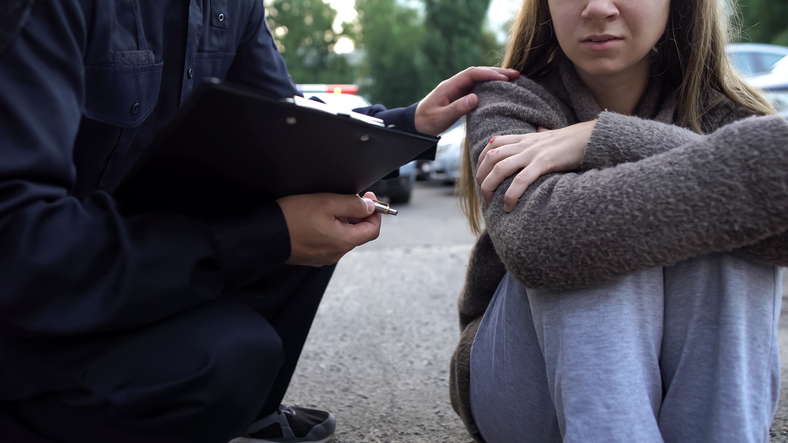Being a victim of crime—directly or indirectly—can be emotionally, physically and financially draining. You’re not alone, though. Australia’s Victim Services are here to help, with financial assistance, counselling and legal support.
According to the Australian Bureau of Statistics (2022-2023), 4% of Australians 15 and over have been victims of crime. This includes 1.7% physical assault, 2.2% face-to-face threats and 0.5% sexual assault (for 18 and over).
If you’ve been affected, you might be wondering how to get the help you deserve. Where do you start? What documents do you need? How can you make sure your claim goes through without a hitch?
Don’t worry—we’ve got you covered. In this guide, we’ll walk you through everything you need to know about filing a victim services claim in Australia, step by step.

Submitting the Victim of Crime Claim
Here’s how the process of filing a victim of crime claim goes in Australia:
Step 1: Report the Crime
In most cases, victims must report the crime to the police before filing a victim services claim. A police report is essential evidence for your application. However, some exceptions exist, particularly for domestic violence or sexual assault cases where reporting may not be safe or possible.
If you haven’t reported the crime yet, you can do so by:
- Visiting your local police station
- Calling the non-emergency police line in your state
- Filing an online police report (available in some jurisdictions)
Step 2: Get the Necessary Documents
A strong victim services claim requires supporting documents. While the requirements vary by state, most applications need:
- A police report or crime reference number
- Medical records – If you were physically injured, hospital or doctor reports are essential.
- Psychological assessments – For emotional trauma claims, documentation from a counsellor, psychologist or psychiatrist may be required.
- Financial records – If you claim lost wages, medical expenses or property damage, you’ll need relevant receipts, invoices or payslips.
- Victim impact statement – Some states require a personal statement explaining how the crime has affected your life.
Step 3: Make Your Claim
Once you have all the necessary documents, you can submit your claim to the relevant victim services agency in your state or territory. Here’s where to apply based on your location:
- New South Wales: Victims Services NSW
- Victoria: Victims of Crime Assistance Tribunal (VOCAT)
- Queensland: Victim Assist Queensland
- Western Australia: Criminal Injuries Compensation WA
- South Australia: Commissioner for Victims’ Rights SA
- Tasmania: Victims Support Services TAS
- Northern Territory: Crime Victims Services Unit NT
- Australian Capital Territory: Victims of Crime Commissioner ACT
Most states allow applications to be submitted online, by mail or in person.
Step 4: Wait for Assessment and Processing
After you submit your claim, the agency will review your application. Processing times vary depending on the state, the complexity of the case and the volume of claims being handled. Some cases are processed in a few weeks, others may take several months.
You may be asked to provide more information or attend an interview to discuss your claim during this time.
What Support Can You Receive?
Victim Services provides various forms of assistance depending on your needs and eligibility. These may include:
| Entitlements | Description |
|---|---|
| Financial Assistance | Expenses related to the crime, including:Medical and dental expensesCounselling and psychological therapyLost wages due to injury or traumaSafety measures, such as home security upgrades or relocation costsFuneral expenses for families of homicide victims |
| Counselling and Psychological Support | Free or subsidised counselling for victims and their families to help them process trauma and cope with emotional distress. |
| Legal and Court Support | Assistance navigating the legal system, including:Support during court proceedingsHelp with victim impact statementsGuidance on applying for compensation |
| Protection and Safety Services | Protection measures, such as: Restraining ordersEmergency housingPolice intervention, etc. |
In Australia, victims are usually entitled to a lump sum payment for recognition and acknowledgement of trauma suffered. However, the level of support varies depending on the severity of the injuries.
- Up to the injury “threshold” – Income support, medical and home care expenses for up to 12 months
- Above the injury “threshold” – Income support, medical and home care expenses that can extend beyond 24 months if there is a claim for damages, as well as a lump sum for past and future lost income
- Above the injury “threshold” (plus over 10% permanent impairment) – An additional lump sum for pain and suffering
Contact Wyatts’ victim of crime lawyers to assess your eligibility and get what you’re entitled to.
Making a Victim Services Claim: Common Challenges and How to Overcome Them
Making a Victim Services claim is there to support those who need it most. But the process can be tough. Here are some of the common challenges you might face—and how to overcome them.
Delays in processing can be frustrating. If your claim takes longer than expected, follow up with the agency handling your case. Keeping copies of all your submitted documents on hand can speed things up if you need to resubmit anything.
One of the main reasons claims get delayed or denied is that there just isn’t enough evidence. If you’re missing records, don’t be afraid to seek out alternative documentation. That might include witness statements or additional medical reports.
Missed deadlines can be a real issue. Each state has its own time limits for making a claim—usually between one and three years after the crime. However, there are exceptions for survivors of childhood abuse or domestic violence, where claims can often be made later.
Our Victim Services Claim Lawyers Are Here to Help
Making a Victim Services claim in Australia can provide crime victims with the financial and emotional support they need to recover. That process can be daunting, but an expert lawyer can take the weight off your shoulders.
At Wyatts, our Victim of Crime lawyers offer free initial consultations and work on a “No Win No Fee” basis. That means you won’t pay unless you win your claim. We’ll assess your eligibility, gather evidence, handle the paperwork and even appeal rejected claims. So you can focus on recovering in peace.
Contact our professional Victim Services lawyers at 1800 773 880 today to get started. We’re here to help you get the support you deserve.





